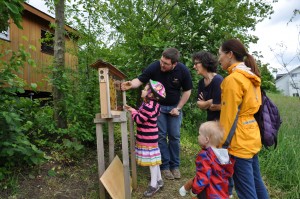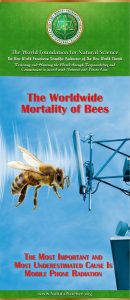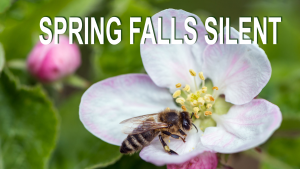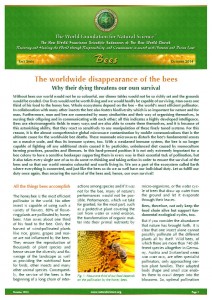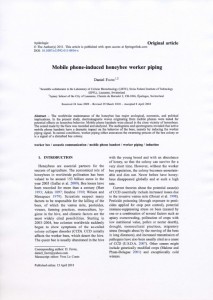For several years now, there have been reports all over the world of an unprecedented phenomenon: the disappearance of the bees. In America there has been a decline of around 30%-70%, depending on which state you are in. Similar observations have been made in Spain, Poland, Switzerland, Germany, India, New Zealand and other industrialised countries. The bees are simply not returning to their beehives, and are disappearing without a trace.
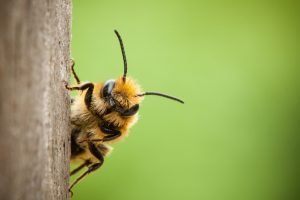
This sudden disappearance (known as ‘Colony Collapse Disorder‘ or CCD) cannot be satisfactorily explained by any of the currently known influencing factors such as intensive monoculture farming, pesticides, dressed or genetically manipulated seeds, illnesses or parasites like the Varroa mite.
However, various scientific studies show that there is a direct connection between the mysterious disappearance of the bee colonies and mobile phone radiation and the resulting disturbance of the Earth’s magnetic field, which bees and other navigating creatures use for their orientation. At the same time the permanent, omnipresent mobile phone radiation weakens the bees‘ immune system – just as it weakens the human immune system – making them more susceptible to the Varroa mite, to viruses and to any kind of environmental influences, especially to unnatural influences such as pesticides and genetically modified plants. 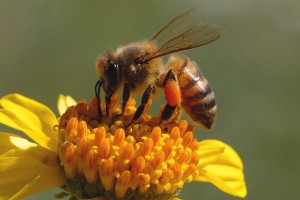
The food supply chain for humanity is acutely threatened by the disappearance of the bees, for about one third of all food worldwide and about 90% of the local fruit-bearing trees depend upon pollination via bees and other pollinating insects.
- Do not use any pesticides in your own garden.
- In your own garden, plant insect-pollinating native plants, and bear in mind that there should be manifold, permanent flowering from spring to autumn.
- Cut down on your use of wireless technologies… more
Please study our informative literature or visit one of our events and learn how to support the bees in their irreplaceable service. Our representatives will be happy to conduct a lecture in your vicinity or at your (beekeeper’s) association. You are also welcome to visit the apiary of one of our beekeepers.









